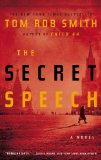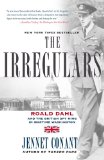Summary | Excerpt | Reviews | Beyond the book | Read-Alikes | Genres & Themes | Author Bio

A Cold War Comic Interlude Starring Nikita Khrushchev, America's Most Unlikely Tourist
by Peter CarlsonIf your last birthday cake was a fire hazard, it may fill you with genuine terror to realize that most college students today were not yet born when the Berlin Wall fell. Apart from reminding some of us to ask for the senior discount, the passage of time since the Soviet Union's dissolution poses a provocative question - now that the struggle between capitalism and communism no longer defines global politics, is the world an entirely different place? In his entertaining and unpretentious narration of diplomatic misadventures between the two superpowers at the height of the Cold War, Peter Carlson shows us things may not have changed as much as we think.
Carlson's book does not deliver, or even attempt, a rigorous consideration of the political dilemmas that defined the early 1960s. Instead, K Blows Top cuts straight to what the author knows best, journalism and journalists. Even the book's title comes from a newspaper headline describing the Soviet Premier's comically explosive reaction when his American hosts refused to take him to Disneyland. Carlson gives us a journalist’s-eye-view of what brought Nikita Khrushchev to the United States in the first place, depicting Vice President Richard Nixon as an awkward emissary who visited Moscow to further his own political career and made a spectacle at the American National Exhibition by debating the merits of kitchen appliances with the leader of the Soviet Union.
When Khrushchev reciprocates Nixon's visit, we ride along with the press corps as "K" touches down in the Big Apple, rubs elbows and trades barbs with Hollywood bigwigs, tramps through an Iowa cornfield, and kisses president Eisenhower's grandchildren in their Pennsylvania farmhouse. The book's strongest moments come when the author's newsroom instincts take us inside the private quarters and public halls where a godless soviet dictator showed his all-too-human face to American businessmen, entertainers, politicians, and Average Joes. Particularly evocative scenes include K breaking bread with cantankerous unionists and sharing cocktails with postwar robber barons.
Vivid personalities enrich the story throughout, each embellished by some biographical anecdote. We see Khrushchev's chaperone Henry Cabot Lodge, Jr. - later Richard Nixon’s running mate - working his political magic on the cantankerous mayor of Los Angeles who refused to play gracious host to the communist dictator. References to the home movies of Nikita's son Sergei provide evocative imagery as counterpoint to the staid tableaux of official pomp. Contributions also come from Marilyn Monroe's maid, the president of IBM and a sundry assortment of low-level diplomatic and political figures. But the most compelling voices are those of the journalists, including NPR's Daniel Schorr, whose awe, disdain and frustration serve as a road map to Khrushchev’s historic visit.
In fact, the importance of journalists not simply as passive reporters of events but as active players is the book's most lasting message. As we hear from New York Times columnist James Reston, newsmen were "the principal characters in the drama, whose very presence is so ubiquitous that most of the time Mr. Khrushchev is addressing them, or addressing others with them in mind." By unraveling how events on the world stage were shaped by a mass media whose foot soldiers were learning the art of spectacle journalism on the fly, Carlson reveals the seed of today's media culture in yesterday's headlines.
The story loses a bit of steam as it moves away from K's first visit to the U.S. and takes up some of the more ornate political exchanges that marked the end of Eisenhower’s presidency, including the unforgettably infamous image of the Soviet Premier using his shoe as a gavel in the United Nation's General Assembly. All in all, though, this is a well-executed, pleasant piece of historical reportage about a crucial and colorful slice of the twentieth century.
![]() This review was originally published in The BookBrowse Review in July 2009, and has been updated for the
August 2010 edition.
Click here to go to this issue.
This review was originally published in The BookBrowse Review in July 2009, and has been updated for the
August 2010 edition.
Click here to go to this issue.

If you liked K Blows Top, try these:

by Tom Rob Smith
Published 2010
Former state security officer Leo Demidov is struggling to change as the Soviet Union changes around him. The two young girls he adopted have yet to forgive him for his part in the death of their parents, and they are not alone; now that the truth is out, Leo and his family are in grave danger from someone consumed by the dark legacy of Leo's past...

by Jennet Conant
Published 2009
An extraordinary tale of deceit, double-dealing, and moral ambiguity - an insider's view of the counterintelligence game played by the British in Washington during the early days of World War II.
Your guide toexceptional books
BookBrowse seeks out and recommends the best in contemporary fiction and nonfiction—books that not only engage and entertain but also deepen our understanding of ourselves and the world around us.